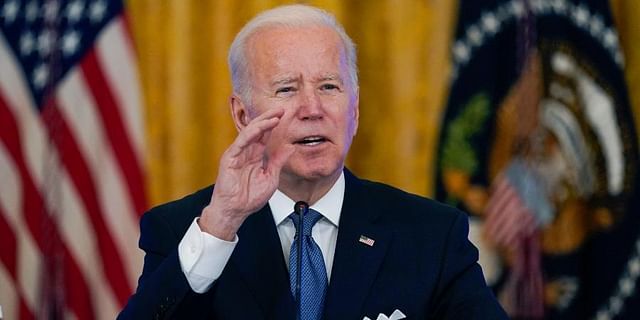 BENGALURU: Joe Biden has become the first US president to establish combating corruption as a core US national security priority via his June 3 National Security Study Memorandum (NSSM) on the fight against corruption.
BENGALURU: Joe Biden has become the first US president to establish combating corruption as a core US national security priority via his June 3 National Security Study Memorandum (NSSM) on the fight against corruption.
Chandana Ravindranath, director, anti-corruption, National Security Council (NSC), White House, while speaking to select journalists from across the world in the ‘US Anticorruption Efforts Virtual Reporting Tour’ organised by the US State Department recently, highlighted the multi-pronged efforts that the Biden-Harris administration is taking to root out corruption and corrupt actors within and outside the country.
The TNIE correspondent was selected as one of the two candidates from India in a tightly held competition for the VRT.
“The US administration has identified corruption as a threat to national security, economic equity, development, and governance itself. Since the release of the NSSM-1, the President has continued to elevate anti-corruption to multilateral fora, including the G7 and G20, and speeches and remarks, including at the UN General Assembly,” added Ravindranath, who supports the Biden-Harris administration’s priority on countering corruption, and works closely with the US interagency and with key stakeholders including journalists.
Pursuant to the NSSM, US departments and agencies have been directed by Biden to review and identify measures on how the US Government can amplify, enhance and expedite efforts to prevent corruption, curb illicit finance, have a better hold on corrupt actors and strengthen the capacity of stakeholders such as investigative journalists, members of civil society, whistleblowers and other anti-corruption advocates, who expose corruption and corrupt actors often at great personal risks.
On December 6, 2021, the White House published the first-ever US Strategy on Countering Corruption under five mutually reinforcing pillars.
“These include modernizing, coordinating, and resourcing US government efforts to prevent corruption; curbing illicit finance; holding corrupt actors accountable; preserving and strengthening the multilateral anti-corruption architecture; and improving diplomatic engagement and leveraging foreign assistance resources to achieve anti-corruption policy goals,” she explained.
Ravindranath said that the US leadership is also “remedying the deficiencies” within their own system and “making it harder to hide the proceeds of ill-gotten wealth in the United States.”
To achieve this goal, the US is increasing and ensuring transparency in real estate transactions to make it more difficult for corrupt actors to launder their funds. “We will be effectively implementing federal law requiring US companies to report their beneficial owner, or their true owner of the company, making it harder for corrupt actors to hide behind opaque corporate structures,” added Ravindranath.
In line with the Summit for Democracy, President Biden announced specific actions to support anti-corruption change actors across civil society, media, academia, and labor organizations, including funding and empowering anti-corruption change agents programmes, which will promote protective measures for whistleblowers, civil society activists, journalists, and others at risk due to their anti-corruption work.
“We will also support the work of organizations such as the Global Anti-corruption Consortium by providing up to $6 million USD to enhance their work to connect media and civil society organizations with one another to expose ill-gotten gains and support legal or policy changes in support of anti-corruption objectives,” said the Director, anti-corruption, NSC.





